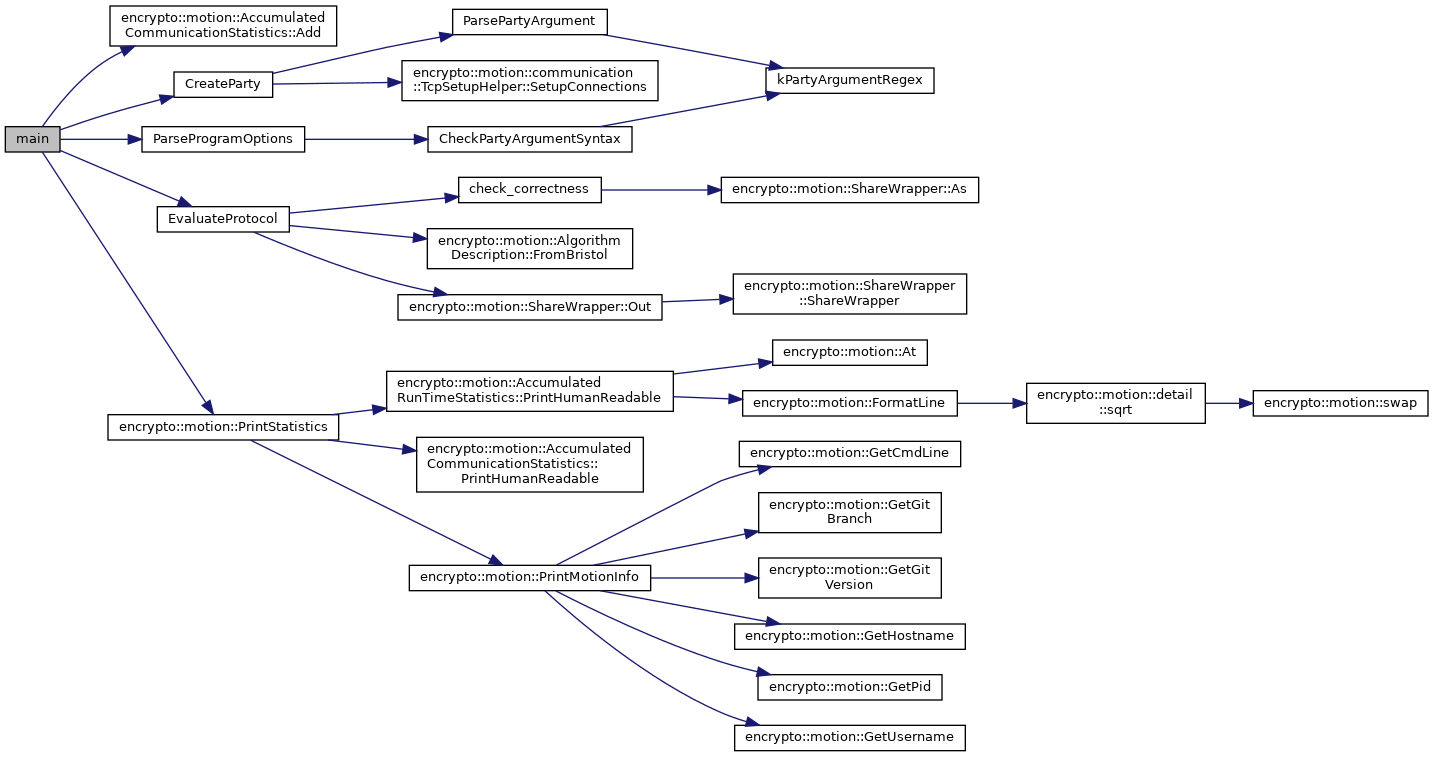#include <cmath>#include <fstream>#include <iostream>#include <random>#include <regex>#include <fmt/format.h>#include <boost/lexical_cast.hpp>#include <boost/program_options.hpp>#include "base/party.h"#include "common/mult3.h"#include "communication/communication_layer.h"#include "communication/tcp_transport.h"#include "statistics/analysis.h"#include "utility/typedefs.h"
Include dependency graph for mult3_main.cpp:

Functions | |
| bool | CheckPartyArgumentSyntax (const std::string &party_argument) |
| std::pair< program_options::variables_map, std::vector< bool > > | ParseProgramOptions (int ac, char *av[]) |
| encrypto::motion::PartyPointer | CreateParty (const program_options::variables_map &user_options) |
| int | main (int ac, char *av[]) |
| const std::regex | kPartyArgumentRegex ("([012]),([^,]+),(\\d{1,5})") |
| std::tuple< std::size_t, std::string, std::uint16_t > | ParsePartyArgument (const std::string &party_argument) |
Function Documentation
◆ CheckPartyArgumentSyntax()
| bool CheckPartyArgumentSyntax | ( | const std::string & | party_argument | ) |
Here is the call graph for this function:

Here is the caller graph for this function:

◆ CreateParty()
| encrypto::motion::PartyPointer CreateParty | ( | const program_options::variables_map & | user_options | ) |
Here is the call graph for this function:

Here is the caller graph for this function:

◆ kPartyArgumentRegex()
| const std::regex kPartyArgumentRegex | ( | " | [012], |
| ([^,]+) | , | ||
| (\\d{1, 5})" | |||
| ) |
Here is the caller graph for this function:

◆ main()
| int main | ( | int | ac, |
| char * | av[] | ||
| ) |
Here is the call graph for this function:

◆ ParsePartyArgument()
| std::tuple<std::size_t, std::string, std::uint16_t> ParsePartyArgument | ( | const std::string & | party_argument | ) |
Here is the call graph for this function:

Here is the caller graph for this function:

◆ ParseProgramOptions()
| std::pair<program_options::variables_map, std::vector<bool> > ParseProgramOptions | ( | int | ac, |
| char * | av[] | ||
| ) |
Here is the call graph for this function:

Here is the caller graph for this function:

 1.8.17
1.8.17